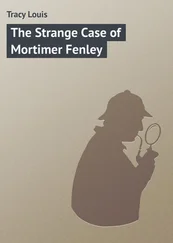Louis Tracy - The Day of Wrath - A Story of 1914
Здесь есть возможность читать онлайн «Louis Tracy - The Day of Wrath - A Story of 1914» — ознакомительный отрывок электронной книги совершенно бесплатно, а после прочтения отрывка купить полную версию. В некоторых случаях можно слушать аудио, скачать через торрент в формате fb2 и присутствует краткое содержание. Жанр: foreign_prose, на английском языке. Описание произведения, (предисловие) а так же отзывы посетителей доступны на портале библиотеки ЛибКат.
- Название:The Day of Wrath: A Story of 1914
- Автор:
- Жанр:
- Год:неизвестен
- ISBN:нет данных
- Рейтинг книги:5 / 5. Голосов: 1
-
Избранное:Добавить в избранное
- Отзывы:
-
Ваша оценка:
- 100
- 1
- 2
- 3
- 4
- 5
The Day of Wrath: A Story of 1914: краткое содержание, описание и аннотация
Предлагаем к чтению аннотацию, описание, краткое содержание или предисловие (зависит от того, что написал сам автор книги «The Day of Wrath: A Story of 1914»). Если вы не нашли необходимую информацию о книге — напишите в комментариях, мы постараемся отыскать её.
The Day of Wrath: A Story of 1914 — читать онлайн ознакомительный отрывок
Ниже представлен текст книги, разбитый по страницам. Система сохранения места последней прочитанной страницы, позволяет с удобством читать онлайн бесплатно книгу «The Day of Wrath: A Story of 1914», без необходимости каждый раз заново искать на чём Вы остановились. Поставьте закладку, и сможете в любой момент перейти на страницу, на которой закончили чтение.
Интервал:
Закладка:
“Have we?” she retorted, bravely emulating his self-control. “I am glad you have fixed on our destination. It’s quite a relief to be in charge of a man who really knows what he wants, and sees that he gets it.”
He led the way, she followed. He had an eye for all quarters, because daylight was coming now with the flying feet of Aurora. But this tiny section of Belgium was free from Germans, for the very good reason that their cohorts already held the right bank of the Meuse at many points, and their engineers were throwing pontoon bridges across the river at Visé and Argenteau.
From the edge of the wood Dalroy looked down on the river, the railway, and the little town itself. He saw instantly that the whole district south of the Meuse was strongly held by the invaders. Three arches of a fine stone bridge had been destroyed, evidently by the retreating Belgians; but pontoons were in position to take its place. Twice already had Belgian artillery destroyed the enemy’s work, and not even a professional soldier could guess that the guns of the defence were only awaiting a better light to smash the pontoons a third time. In fact, barely half-a-mile to the right of the wood, a battery of four 5.9’s was posted on high ground, in the hope that the Belgian guns of smaller calibre might be located and crushed at once. Even while the two stood looking down into the valley, a sputtering rifle-fire broke out across the river, three hundred yards wide at the bridge, and the volume of musketry steadily increased. Men, horses, wagons, and motors swarmed on the roadway or sheltered behind warehouses on the quays.
As a soldier, Dalroy was amazed at the speed and annihilating completeness of the German mobilisation. Indeed, he was chagrined by it, it seemed so admirable, so thoroughly thought-out in each detail, so unapproachable by any other nation in its pitiless efficiency. He did not know then that the vaunted Prussian-made military machine depended for its motive-power largely on treachery and espionage. Toward the close of July, many days before war was declared, Germany had secretly massed nine hundred thousand men on the frontiers of Belgium and the Duchy of Luxembourg. Her armies, therefore, had gathered like felons, and were led by master-thieves in the persons of thousands of German officers domiciled in both countries in the guise of peaceful traders.
Single-minded person that he was, Dalroy at once focused his thoughts on the immediate problem. A small stream leaped down from the wood to the Meuse. Short of a main road bridge its turbulent course was checked by a mill-dam, and there was some reason to believe that the mill might be Joos’s. The building seemed a prosperous place, with its two giant wheels on different levels, its ample granaries, and a substantial house. It was intact, too, and somewhat apart from the actual line of battle. At any rate, though the transition was the time-honoured one from the frying-pan to the fire, in that direction lay food, shelter, and human beings other than Germans, so he determined to go there without further delay. His main purpose now was to lodge his companion with some Belgian family until the tide of war had swept far to the west. For himself, he meant to cross the enemy’s lines by hook or by crook, or lose his life in the attempt.
“One more effort,” he said, smiling confidently into Irene’s somewhat pallid face. “Your uncle lives below there, I fancy. We’re about to claim his hospitality.”
He hid the rifle, bayonet, and cartridges in a thicket. The milk-pail he took with him. If they met a German patrol the pail might serve as an excuse for being out and about, whereas the weapons would have been a sure passport to the next world.
It was broad daylight when they entered the miller’s yard. They saw the name Henri Joos on a cart.
“Good egg!” cried Dalroy confidently. “I’m glad Joos spells his Christian name in the French way. It shows that he means well, anyhow!”
CHAPTER IV
THE TRAGEDY OF VISÉ
Early as was the hour, a door leading to the dwelling-house stood open. The sound of feet on the cobbled pavement of the mill-yard brought a squat, beetle-browed old man to the threshold. He surveyed the strangers with a curiously haphazard yet piercing underlook. His black eyes held a glint of red. Here was one in a subdued torment of rage, or, it might be, of ill-controlled panic.
“What now?” he grunted, using the local argot.
Dalroy, quick to read character, decided that this crabbed old Walloon was to be won at once or not at all.
“Shall I speak French or German?” he said quietly. The other spat.
“ Qu’est-ce que tu veux que je te dise, moi? ” he demanded. Now, the plain English of that question is, “What do you wish me to say?” But the expectoration, no less than the biting tone, lent the words a far deeper meaning.
Dalroy was reassured. “Are you Monsieur Henri Joos?” he said.
“Ay.”
“This lady and I have come from Aix-la-Chapelle with your man, Maertz.”
“Oh, he’s alive, then?”
“I hope so. But may we not enter?”
Joos eyed the engine-cleaner’s official cap and soiled clothes, and his suspicious gaze travelled to Dalroy’s well-fitting and expensive boots.
“Who the deuce are you?” he snapped.
“I’ll tell you if you let us come in.”
“I can’t hinder you. It is an order, all doors must be left open.”
Still, he made way, though ungraciously. The refugees found themselves in a spacious kitchen, a comfortable and cleanly place, Dutch in its colourings and generally spick and span aspect. A comely woman of middle age, and a plump, good-looking girl about as old as Irene, were seated on an oak bench beneath a window. They were clinging to each other, and had evidently listened fearfully to the brief conversation without.
The only signs of disorder in the room were supplied by a quantity of empty wine-bottles, drinking-mugs, soiled plates, and cutlery, spread on a broad table. Irene sank into one of half-a-dozen chairs which had apparently been used by the feasters.
Joos chuckled. His laugh had an ugly sound. “Pity you weren’t twenty minutes sooner,” he guffawed. “You’d have had company, pleasant company, visitors from across the frontier.”
“I, too, have crossed the frontier,” said Irene, a wan smile lending pathos to her beauty. “I travelled with Germans from Berlin. If I saw a German now I think I should die.”
At that, Madame Joos rose. “Calm thyself, Henri,” she said. “These people are friends.”
“Maybe,” retorted her husband. He turned on Dalroy with surprising energy, seeing that he was some twenty years older than his wife. “You say that you came with Maertz,” he went on. “Where is he? He has been absent four days.”
By this time Dalroy thought he had taken the measure of his man. No matter what the outcome to himself personally, Miss Beresford must be helped. She could go no farther without food and rest. He risked everything on the spin of a coin. “We are English,” he said, speaking very slowly and distinctly, so that each syllable should penetrate the combined brains of the Joos family. “We were only trying to leave Germany, meaning harm to none, but were arrested as spies at Aix-la-Chapelle. We escaped by a ruse. I knocked a man silly, and took some of his clothes. Then we happened on Maertz at a corner of Franz Strasse, and persuaded him to give us a lift. We jogged along all right until we reached the cross-roads beyond the hill there,” and he pointed in the direction of the wood. “A German officer refused to allow us to pass, but a motor transport knocked the wagon over, and this lady and I were thrown into a field. We got away in the confusion, and made for a cowshed lying well back from the road and on the slope of the hill. At that point my friend fainted, luckily for herself, because, when I examined the shed, I found the corpse of an old woman there. She had evidently been about to milk a black-and-white cow when she was bayoneted by a German soldier – ”
Читать дальшеИнтервал:
Закладка:
Похожие книги на «The Day of Wrath: A Story of 1914»
Представляем Вашему вниманию похожие книги на «The Day of Wrath: A Story of 1914» списком для выбора. Мы отобрали схожую по названию и смыслу литературу в надежде предоставить читателям больше вариантов отыскать новые, интересные, ещё непрочитанные произведения.
Обсуждение, отзывы о книге «The Day of Wrath: A Story of 1914» и просто собственные мнения читателей. Оставьте ваши комментарии, напишите, что Вы думаете о произведении, его смысле или главных героях. Укажите что конкретно понравилось, а что нет, и почему Вы так считаете.












